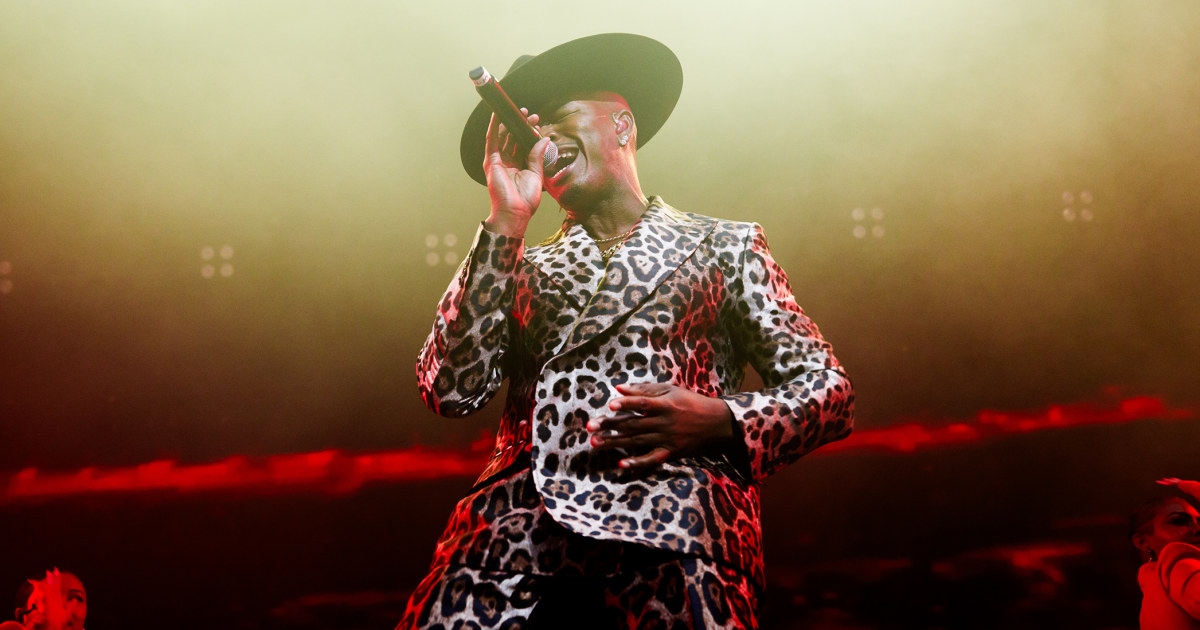Entertainment
‘Squid Game: The Challenge’ producers tease ‘fresh’ season 2
It’s been six months since Squid Game: The Challenge awarded the biggest prize pot in reality TV history to Player 287, a.k.a. Mai Whelan, after the most high-stakes game of rock/paper/scissors ever. But the show’s producers are still in shock a half year later thinking about how they successfully shot, edited, and released the whole thing.
Netflix
Based on Netflix’s Emmy-winning scripted drama Squid Game, the reality competition adaptation featured 456 contestants competing for a $4.56 million prize, with the set, costumes, and games meticulously recreated from creator Hwang Dong-hyuk’s vision. And Squid Game: The Callenge executive producers John Hay and Stephen Yemoh admit to Entertainment Weekly that for “most of production,” they weren’t really sure they could even pull off a show of this magnitude.
“If you’re given a gift like this, the chance to adapt IP this special and successful, if you’re not having those moments of doubt at some point in the course of each working day, you’re probably not pushing it far enough,” Hay tells EW. “The good thing about that is, usually the second season is the one that’s burdened with expectations — on this show, the first season was burdened with expectations, so that’s nothing new for us.”
Netflix previously renewed both the scripted drama and reality competition series for second seasons, and Yemoh says he feels “fortunate” to not only return for season 2 but also simply to continue working in TV after they didn’t screw up adapting one of the biggest shows in recent years.
“It’s heartening to know we’re not going to lose our jobs,” Yemoh says with a smile. “The big thing was we didn’t want anyone to say that we’ve messed up Squid Game. This is such a beloved IP that the nerves are even more jangling because you don’t want to ruin it. There was a lot of expectation on this show for various reasons, and so you want to do what’s right by the fans, and so until the show’s been seen and you start to see the comments and you start to get the messages from your friends and people like that, you start to go, ‘Okay, I think we can work again.'”
While the producers can’t reveal much about season 2, they promise that they’re planning to keep things “fresh.”
“We’re very excited, but that’s kind of all we can say at this point,” Hay says.
Courtesy of Netflix
Yemoh adds that they learned a lot through the process of making the first season, and they’re using that knowledge while planning season 2.
“You can’t underestimate the planning that goes into the tiniest thing with this show,” Yemoh says. “Season 1 showed us just the logistics involved in doing a show like this — even the first 15 minutes of our show, just Red Light, Green Light alone, the logistics and the planning and the development and the tech that had to go into that 15 minutes alone is probably more than some shows have to do for a whole season. It’s credit to the whole team for making sure we had 456 people on that start line on that first day of shooting, all in a tracksuit, all had a number, all had the rules, they all knew exactly what they were doing, all had their squibs on and they all worked, and stuff like that.”
Seeing the response to all the ways they changed the game from what was in the scripted drama has also helped the producers as they develop season 2. “There were things we did have to tweak and adapt and change just to make sure we weren’t simply going through the motions of repeating the [scripted] drama,” Hay says. “It was heartening to see how well they were received, so that gives us more room for play as we move forward with it.”
One of the biggest changes came in the finale, when Mai faced off against Player 451/Phill Cain in a game of rock/paper/scissors instead of the physical Squid Game battle. “We were definitely not going to do a knife fight in the rain, so we knew there would be some reactions to the change,” Hay says. “But [the response] seemed heartening, actually. There’s something about the juxtaposition of the simple game and the huge stakes that felt very true to the world of Squid Game, so we were pretty pleased.”
Hay says that the reports that came out earlier in the season regarding contestants claiming they were put through “inhumane” conditions during filming of Red Light/Green Light, however, will not have an impact on how they’re developing season 2.
Courtesy of Netflix
“It was a big, complicated shoot and it was cold on the day, but the health and safety of the participants is absolutely paramount to us,” he says. “Part of the reason we took our time over it is because of the need for absolutely scrupulous adjudication of each decision that we made, so I’m happy we did that. All proper and correct measures were taken and everyone was looked after in the correct way.”
He continues, “I’m not surprised that something of this scale attracted that kind of coverage, but I do think we did everything we should have done. Our commitment to health and safety and looking after our contributors was solid before, during, and after the report, so it will remain solid for season 2. It’s not affected by the coverage, it’s affected by what we feel is our commitment to our contributors.”
While filming Red Light, Green Light presented its own challenges, producers say their biggest obstacle was actually the sheer size of the cast and making sure they were tracking and crafting a satisfying narrative throughout the entire season, regardless of who won.
Sign up for Entertainment Weekly‘s free daily newsletter to get breaking TV news, exclusive first looks, recaps, reviews, interviews with your favorite stars, and more.
“Just making sure we had enough coverage that when we came in the edit to try and trace some of those storylines backwards, we had the shots of people we needed to do it,” Hay says. “It was just thinking from a technical point of view, but we tried to make a virtue of it because we realized very early on that you can fall in love with people and you can’t control in any way whether they’re going to stay or go, and that felt different. It was truly unpredictable, like Game of Thrones, and that disruption could be a virtue in a world where everything can feel a bit same at times.”
After filming wrapped, that also presented another new challenge: deciding where in the season to introduce the three finalists, Mai, Phill, and Player 16/Sam Lantz. “We all came to the decision of, we don’t have to show the winning person in the first episode, or the first two episodes,” Yemoh says. “We just have to wait for the right moment to introduce them to not shoe-in a person. We waited for what we felt was a natural moment when we lost a few characters who shone bright quite early.”
It also helped that the winner employed a slow-burn, under-the-radar strategy for the beginning of the season. “The way she featured within the edit kind of replicates how she played the game,” Yemoh says. “She went under the radar when she needed to be, popped up when she needed to be, then went back down. She didn’t give too much away when she didn’t need to, but when she really did need to give herself to the process, she really did, and I think the edit tracks that with her.”









